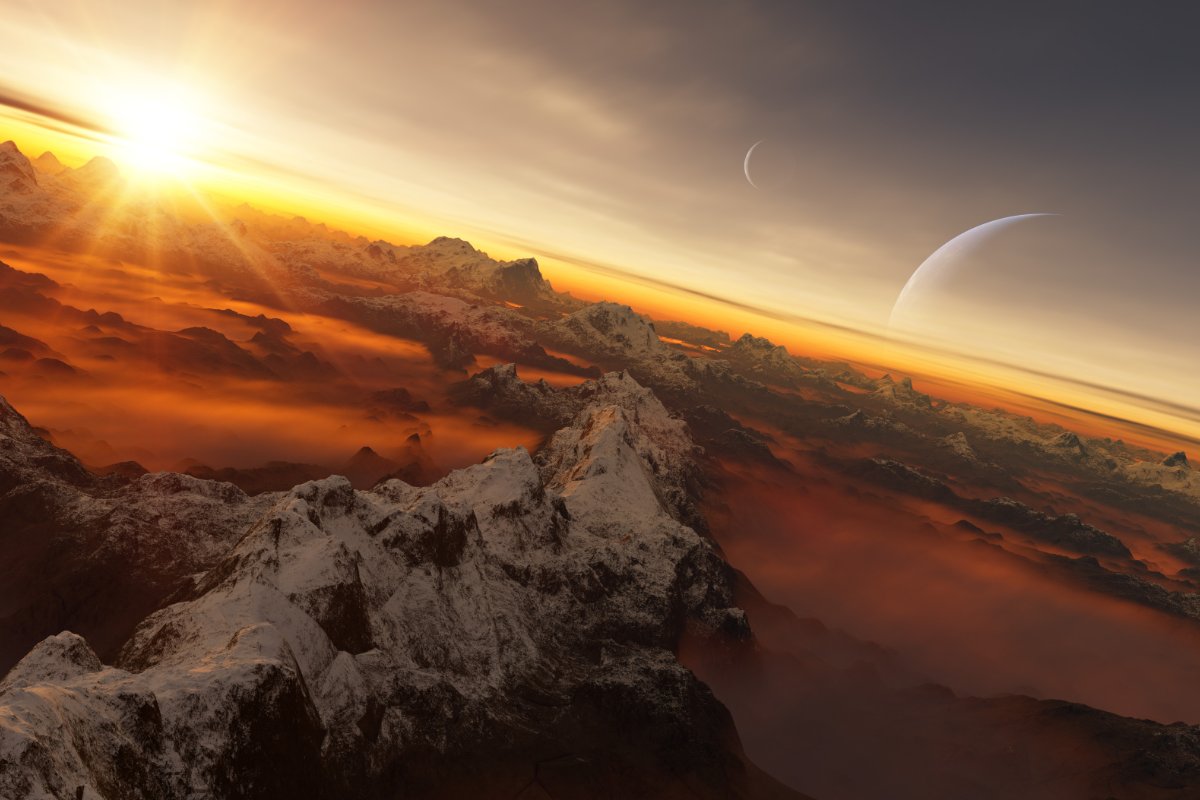
Within the framework of its 100th anniversary commemorations, the International Astronomical Union (IAU) is organizing the IAU100 NameExoWorlds global competition that allows any country in the world to give a popular name to a selected exoplanet and its host star-one of which is depicted here in an artist's rendering. Credit: IAU/L. Calçada
In honour of the 100th anniversary of the International Astronomical Union-the international body that regulates the naming of astronomical objects-roughly 100 countries around the world are being asked to come up with names for exoplanets and the stars they orbit. In Canada, the Canadian Astronomical Society (CASCA), the group of Canadian professional astronomers, is responsible for this initiative.
The current catalogue names of Canada's as-yet unnamed stellar bodies? The star HD136418 and its exoplanet HD136418b-names that don't exactly roll off the tip of the tongue.
Why exactly would we want to name these stellar bodies?
"Names for stars and planets capture our imagination," said Sharon Morsink, Associate Professor in the University of Alberta's Department of Physics and lead on the Canadian initiative. "It's a great way to get people excited and thinking about the universe. As soon as you can start focusing in on a particular star and planet, it becomes a little bit more real. Names are very personal. You don't name your children 'child' and 'child B.' You give them names that mean something to you."
The accepted naming convention is the name of the star preceded by HD in honour of the Henry Draper Catalogue, named after the famed astronomer who was the first to photograph a star's spectrum, in 1872. Then you simply add B to the name of the first planet, C for the second, and so on.
"We can do better than that," chuckled Morsink, the director of the University of Alberta's Observatory. "Things become more important in our minds when we actually name them."
What exactly is an exoplanet anyway?
Simply put, an exoplanet is any planet that orbits a star other than our sun-think, for example of Proxima Centauri b, the planetary body surrounding Proxima Centauri in the Alpha Centauri system. Until the mid 1990s, the only planets we knew about were the ones in our own solar system-think Mars, Jupiter, Venus, etc. But today, there are more than 4,000 known exoplanets.
How do we avoid 'Planety McPlanetface' a la 'Boaty McBoatface?'
"We've put together an expert panel of judges from across Canada who will be looking very carefully at the list of names to come up with a short list of five to ten that not only best represent Canada but also adhere to the guidelines set by the IAU," said Morsink, noting that there will be no commercial names accepted, and names of people will only be accepted if the person has been dead for more than 100 years. So, sadly, no "Shatner," folks.
"Canada has so many cultures that I think we should get 10 planets, but maybe if we do a good job with this one, we will get others."
The contest to submit name ideas for both the star and the exoplanet along with supporting rationale is open until September 20, 2019 during Canada's Science Literacy Week. Once the judges have shortlisted the potential names, Canadians will then have a chance to vote on their top picks in the lead-up to mid-November. Visit https://casca.ca/exoplanet andhttps://casca.ca/exoplanete for more information.
Interested in learning more about the universe beyond our solar system? Check out the Faculty of Science space hub to keep up with the latest UAlberta space research, or take Astro 101: Black Holes-a free online course open to the public, shedding light on one of the universe's most captivating phenomena.